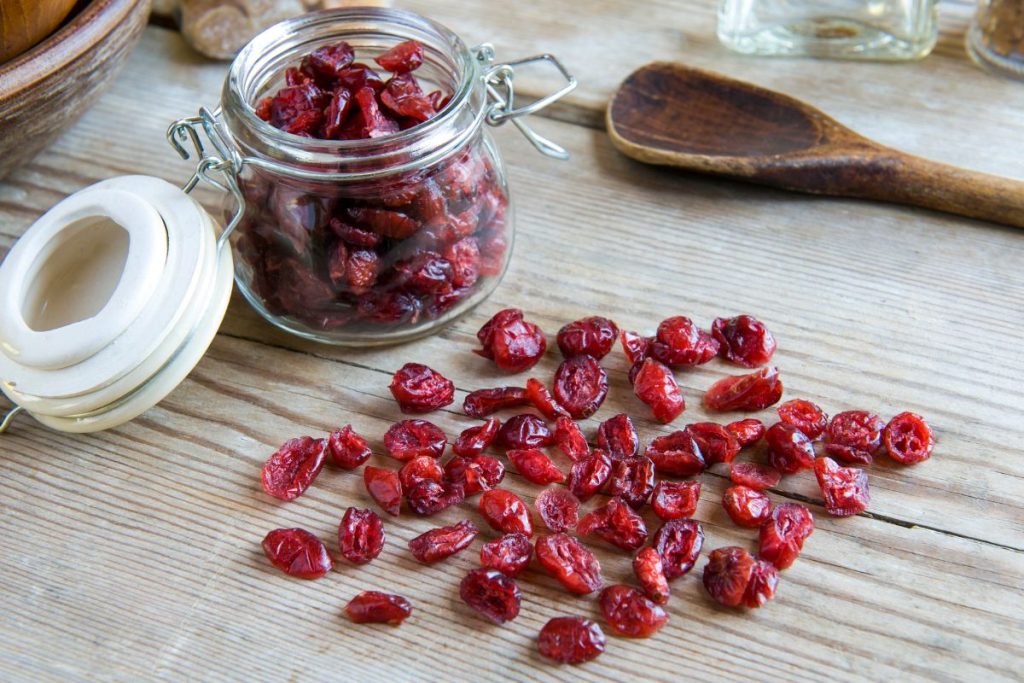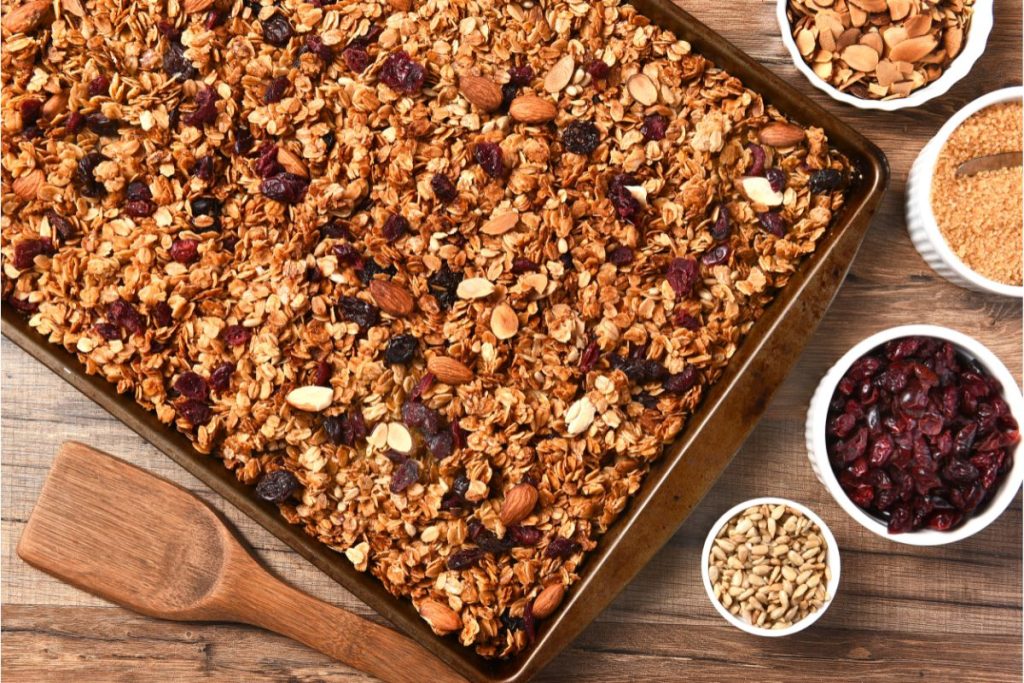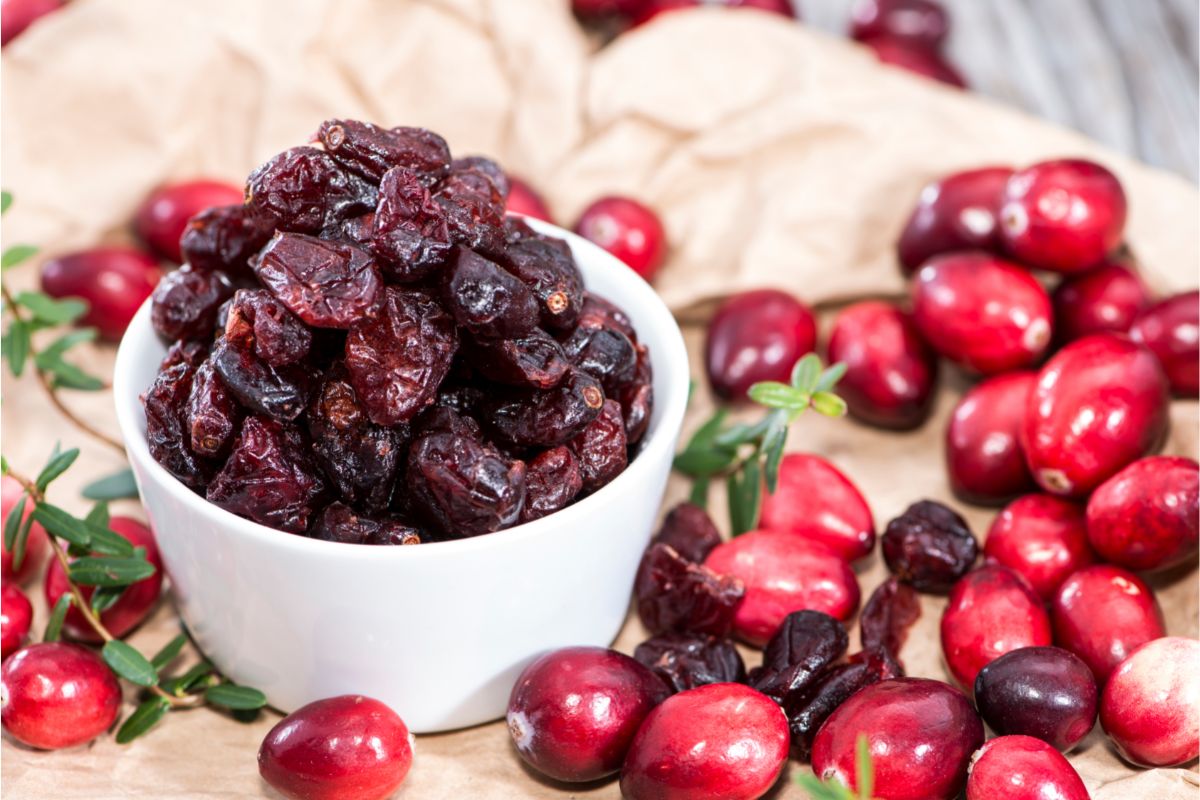Dried cranberries do go bad but can last for up to two years if stored correctly in airtight containers. Signs that dried cranberries have gone bad include a darkening of color, loss of flavor, and a tough and chewy texture.
Table of Contents
Do Dried Cranberries Go Bad Over Time?
Yes, dried cranberries will eventually go bad. The amount of time they last will depend on storage conditions and how thorough the drying process was. Commercially dried cranberries bought from the grocery store are less likely to go bad due to preservatives.
How Can You Tell if Dried Cranberries Have Gone Bad?
You can tell that dried cranberries have gone bad due to a change in the color, texture, and taste of the fruit.
Dried fruit hardens when it has gone bad, making it tough to chew. The color will darken significantly, and the fruit will become less flavorful. Discard dried cranberries if you notice these changes or if they have any visible signs of mold or mildew.
How Long Do Dried Cranberries Last?
Dried cranberries last for 6-12 months in the pantry or 1-2 years if kept in the refrigerator. It’s important that dried fruits are stored correctly in airtight containers to maximize shelf life.
Some manufacturers claim that dried, frozen berries (dried blueberries and craisins) can last for over twenty years if kept in optimum conditions. This is nearly impossible to do with a home freezer and without industrial freeze-drying equipment, but dried cranberries stored in a freezer bag can last for upwards of two years.

Do Dried Cranberries Lose Nutrients Over Time?
Dried cranberries are just as nutritious as fresh cranberries and do not lose their nutrients over time. All of the health benefits, such as the cranberry’s high vitamin C and antioxidant content, are preserved by the drying process.
How Long Can You Keep Dried Cranberries in the Freezer?
Freezing dried cranberries is the best way of keeping them in long-term storage. Dried frozen cranberries can keep for 2-5 years in a freezer.
The best way to store dried cranberries in the freezer is to flash freeze them first. To do this, lay the dried cranberries on a baking sheet, ensuring none are touching, and place them into the freezer for 1-2 hours. Once they are semi-frozen, transfer them to an airtight container and place immediately in the freezer.
How to Dehydrate Cranberries in a Food Dehydrator
Follow the steps below to dehydrate your cranberries in a food dehydrator:
- Before drying, you need to break the skin on the cranberry. You can do this by slicing the skin with the tip of a sharp knife, blanching them, or even roughly chopping them if you are short on time.
- Lay the cranberries on food dehydrator trays in a single layer. Ensure none of the berries are touching, and allow enough space between them for airflow.
- Dry your cranberries at 135°F for 18-24 hours.
- Check on your cranberries regularly, and test for dryness. Dehydrated cranberries won’t release moisture when squeezed and will have a leathery appearance and texture.
- When the cranberries are completely dry, remove them from the dehydrator and allow them to cool to room temperature.
- Once cool, store in an airtight container in a cool, dark, dry place.
What Can You Do with Dried Cranberries?
Dried cranberries can be added to trail mix, turned into cranberry sauce, or rehydrated to create cranberry juice for smoothies and cocktails! They make a festive addition to charcuterie boards and add a pop of tart flavor when used in baked goods.

How Do You Store Dried Cranberries?
For the longest shelf life, the best way to store dried cranberries is to freeze them. However, if freezer space is limited, store dried cranberries in a cool, dark place, such as a kitchen pantry, in an airtight container.

